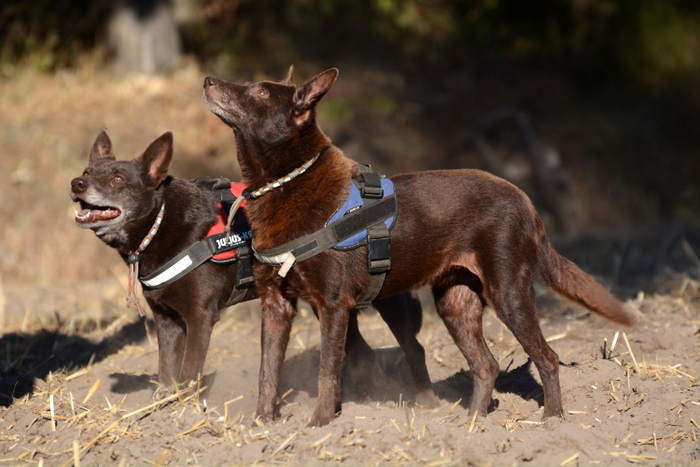Many children love a dog. They do not find it at all difficult to figure out what a dog likes and give it a lot of attention.
But children – despite their good intentions – can also be unpredictable and threatening to dogs.
Unexpected movements, yelling, falling over the dog… for the dog it can be enough reason to raise its lip, growl or even bite.
Taking away a bone or toy or doing pulling games can have disastrous consequences.
It is therefore important to know what to look out for when dealing between children and dogs.

Ten golden rules you can teach your children:
-Never hug a strange dog.
-Never pet a dog without first asking its owner if this is -allowed.
-Never run towards a dog or -run away from a dog hard.
-Do not stare at a dog.
-Do not lie on or under a dog.
-Never disturb a dog while it is eating or sleeping.
-Stay out of the dog basket.
-Never pet a dog on its head, but only under the chin.
-Do not play fetch or tug-of-war with a dog.
-Dogs belong on the floor and not on the sofa.

The ten golden rules for home are:
-The food bowl, water bowl and basket belong only to the dog. Your child should not touch these and should not sit in the dog’s basket.
-Teach your child never to disturb a eating or sleeping dog.
-Do not let the dog on the sofa.
-Teach the dog not to beg when your child has something to eat.
-When cuddling, make sure your child does not lie on or under the dog.
-Do not let your child play lying down on the ground when the dog is there.
-Do not punish your child where the dog is and vice versa.
-Do not leave your child alone with the dog; always have an adult present.
-Be careful if your child wants to frolic with friends. The dog may think the child – its pack mate – is threatened and want to defend it.
-Teach your child to call an adult in.

Never leave children alone.
Never leave young children, such as babies, toddlers and preschoolers, alone with the dog.
If you are not there, the dog treats the child as a rank ranker in the pack and this can be very dangerous for the child.

The ten golden rules for outdoors are:
Never leave your child alone with dogs.
Never let your child look a dog straight in the eye.
Teach your child to ask permission before petting a strange dog.
Do not let your child pet the dog on its head or back, but on the chest, on the side of the neck or under the chin.
Teach your child not to run in front of the dog.
Your child should not give commands to a dog.
Do not let your child play pulling or frolicking games with the dog.
Prevent your child from teasing or hurting the dog (accidentally or not) (for example by pulling its hair, ears or tail).
Don’t let your dog jump up against your child.
Teach your dog not to run after children.

Responsibility of child and parent.
The responsibility for a pet always lies with the parents. Children can quickly lose interest; don’t let your dog suffer as a result.
Still, children who feel responsible for a dog can take over some of the care. This way, they build a great relationship with the animal.
Do tailor the responsibilities to the child’s age. For example, let them help prepare the food, change the water and comb and brush it. Older children can also walk the dog. A good age indication for this is when the children start secondary school.

A new housemate.
Having a dog as a new housemate has a big impact. It is important that the parent is always dominant over the dog. By nature, small children are never above the dog in rank. The dog will have to learn to treat children as rank superior when an adult is present. Never leave babies, toddlers and preschoolers alone with the dog. Once the adult is gone, the dog will treat the child as rank superior again. This can be dangerous for the child.

Prepare your child well for the arrival of a dog.
Teach him that dog language is different from human language and that he should treat the dog with respect. So do not disturb the dog when it eats, plays or sleeps and also do not chase the dog. The ten golden rules are important here. Tell your child that a lot of attention will go to the new housemate. Teach your child that it is okay to spoil the dog sometimes, but that too much spoiling is not good for dogs either.

.
If you are not sure that your children can treat a dog respectfully, postpone the decision to purchase until you can count on it.
If one of the housemates is afraid of dogs, ask yourself whether it is wise to purchase a dog.
Not only a dog as a new housemate can have a big impact. This also applies to the arrival of a baby. If your dog is jealous of the baby, he may show unwanted behaviour. Therefore, when a baby arrives, give the dog plenty of attention too.

Source: houden van honden



